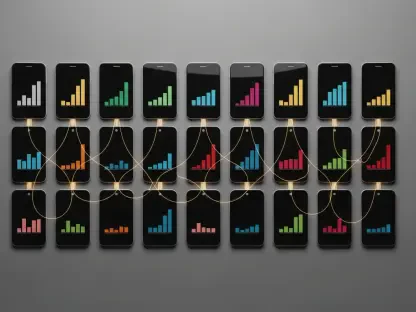I’m thrilled to sit down with Anastasia Braitsik, a globally recognized leader in SEO, content marketing, and data analytics. With her deep expertise in the ever-evolving world of digital marketing, Anastasia is the perfect person to help us unpack the latest developments in Google’s search features. Today, we’ll dive into the buzz surrounding Google’s potential integration of ads into AI-generated search summaries, explore what this means for user experience, and discuss the broader implications for the digital landscape.
Can you walk us through what Google’s AI Overviews are and how they’re currently shaping the search experience for users?
Absolutely, Sophia. Google’s AI Overviews are a game-changer in how search results are presented. They use artificial intelligence to generate concise summaries that appear at the top of the results page, often answering complex queries directly by pulling together information from various web sources. Right now, they’re ad-free, which gives users a clean, focused snapshot of information—whether it’s a quick fact, a how-to guide, or an overview of a topic. It’s been a breath of fresh air for many because it cuts through the clutter of traditional search results.
What’s the latest update on Google’s plan to introduce ads into these AI Overviews?
The big news, based on recent reports from August 2025, is that Google is gearing up to test sponsored content within AI Overviews as early as late 2025. Leaked internal documents suggest these ads will be labeled as “Sponsored” or “Ad” and could appear as contextual links right within or just below the AI-generated answers. Think product recommendations or service listings tied to your search—like a sponsored link for a medication when you look up “migraine remedies.” It’s still in the testing phase, but it’s a significant shift from the current ad-free setup.
Why do you think Google is moving toward monetizing AI Overviews at this particular moment?
It’s largely about the numbers. Google’s advertising revenue growth reportedly slowed to just 3% year-over-year in Q2 2025, which is a red flag for a company that thrives on ad dollars. AI features like Overviews are resource-intensive, and they’ve likely been looking for ways to offset those costs. Monetizing this space makes sense from a business perspective, especially since they’ve already got a history of weaving ads into new features like Google Maps or shopping results. I suspect they’ll start with high-intent commercial searches—think product comparisons or travel bookings—where ads can feel more relevant.
How do you anticipate users will respond to seeing sponsored content mixed into these AI summaries?
I think there’s going to be a mixed bag of reactions. On one hand, users have loved the ad-free nature of AI Overviews—surveys from 2024 showed 78% of people appreciated that clean experience. On the other hand, embedding ads risks blurring the line between organic information and paid promotion, which could erode trust. We’ve seen this before; when Google tested ads in Discover feeds in 2021, user engagement dropped by 11%. If ads in AI summaries aren’t clearly labeled or feel intrusive, I expect a similar pushback—people might feel like they’re being sold to rather than helped.
What has Google said about balancing monetization with maintaining a quality user experience in this context?
Google’s official stance, as of August 2025, is that they’re “exploring ways to experiment responsibly” with new ad formats while prioritizing a high-quality experience. They haven’t shared specifics on how they’ll strike that balance, which leaves some questions unanswered. While their intent to experiment cautiously sounds reassuring, it doesn’t fully address concerns about transparency or trust. Historically, Google has been good at tweaking ad placements based on feedback, but they’ll need to be upfront about how these ads influence the information users see.
How could the introduction of ads in AI Overviews impact the broader search ecosystem, beyond just the summaries themselves?
It’s potentially a domino effect. If ads take up prime real estate in AI summaries, they could siphon clicks away from organic search results further down the page. That’s a big concern for website owners and publishers who rely on search traffic—fewer clicks mean less revenue for them. We might see a shift in SEO strategies, with more focus on getting content directly into AI answers or even paying for ad placements. It’s a reminder that changes at the top of the search page ripple out to everyone in the digital space.
What options, if any, do you think users might have to limit or avoid ads in AI summaries once they’re rolled out?
At this stage, it’s unclear if Google will offer a built-in way to disable these ads entirely, though they’ve historically allowed users to tweak personalized ad settings in their accounts. Ad blockers might be a workaround, depending on how the ads are coded into the summaries, but they’re not foolproof. Ultimately, users might have to weigh convenience against privacy—using alternative search engines or tools could become more appealing if the ad experience feels too intrusive.
What’s your forecast for how ads in AI Overviews will shape the future of search over the next few years?
I think we’re at a pivotal moment. If Google can integrate ads seamlessly—clearly labeled, highly relevant, and non-disruptive—they could set a new standard for monetized search without alienating users. But if they misstep and prioritize revenue over trust, we might see a shift in user behavior, with more people turning to ad-free alternatives or privacy-focused platforms. The next couple of years will be about finding that sweet spot, and I’m curious to see how much user feedback and regulatory scrutiny will influence their approach. It’s a tightrope walk, for sure.









